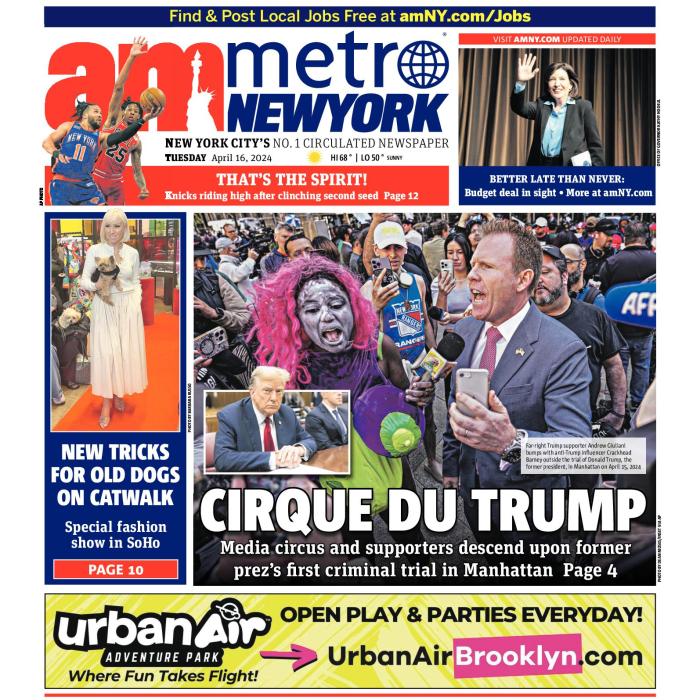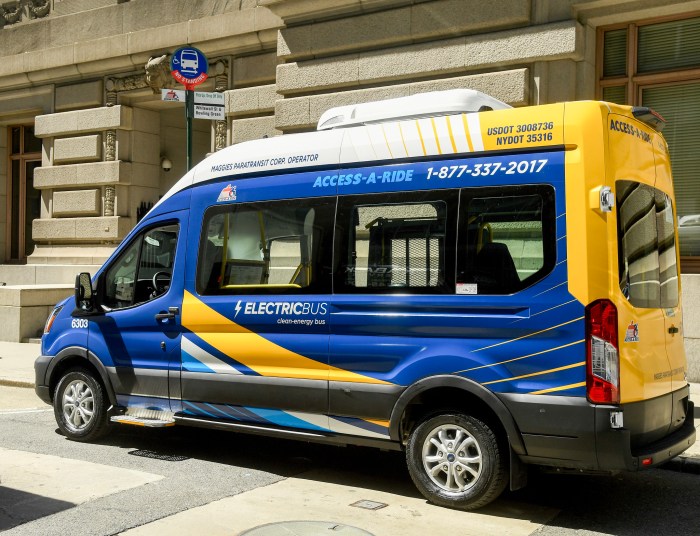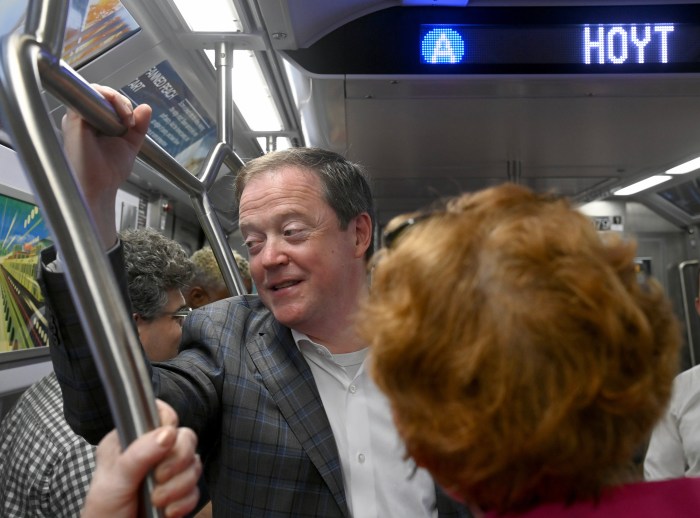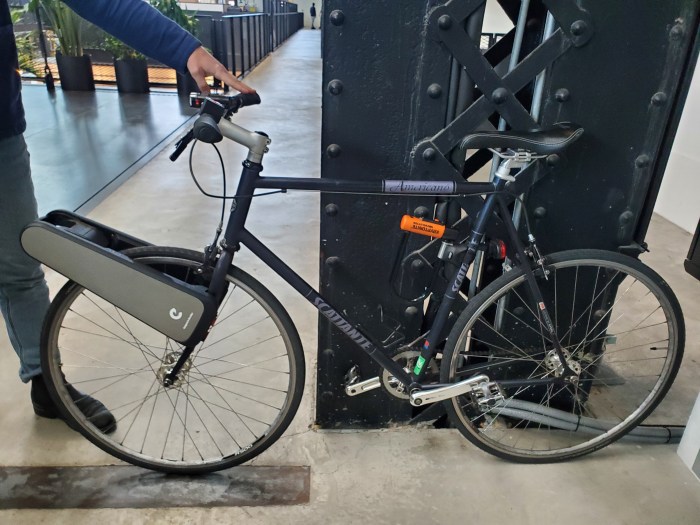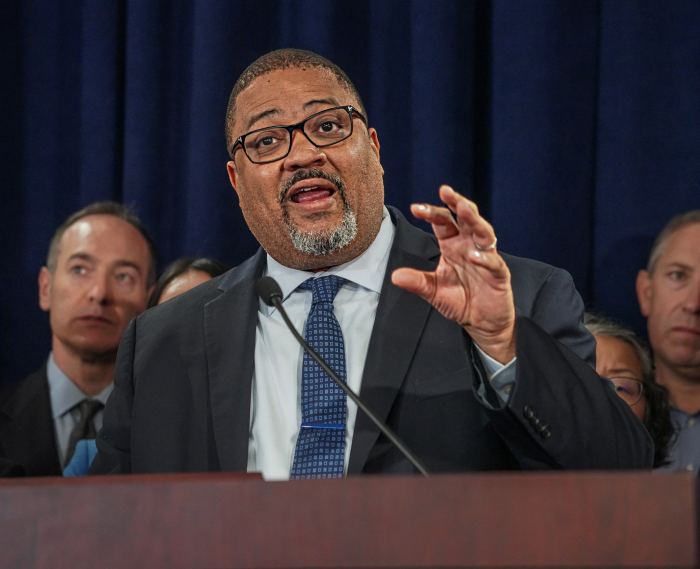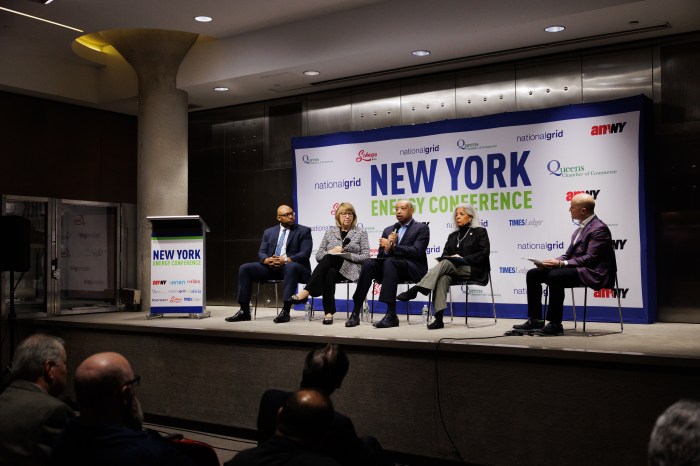
Gov. Andrew Cuomo’s executive budget would dump a bigger-than-ever share of the financial responsibilities for the beleaguered MTA onto New York City, the de Blasio administration said Tuesday.
As budget hearings get under way in Albany, members of de Blasio’s administration said the city would fight legislation proposed in the budget that would require the city to pony up significantly higher funds toward subways and buses while stripping the city’s access to certain property tax revenues by directly funneling that money to the MTA.
“We are objecting strongly to language that was inserted into the budget that would create a new, capital liability, a new capital commitment liability on the part of the city for New York City Transit, which is breaking a long-standing history of how the MTA is funded,” said First Deputy Mayor Dean Fuleihan during a conference call with reporters.
There appear to be three specific legislative actions in the budget that the city takes issue with, in what is the latest back and forth over MTA responsibilities between the mayor and governor who effectively controls the transportation authority.
One proposed piece of legislation in the budget would force the city to fund half of the MTA’s $836 million Subway Action Plan. A second would require the city to “provide in full all funding required to meet the capital needs of the New York City transit authority,” which is comprised of the agency’s subway and bus networks.
That amendment could require about a sevenfold increase in city funding toward MTA transit, based on today’s figures. In the MTA’s current five-year capital plan, the city has pledged $2.5 billion toward the plan, which packs an $18 billion budget for transit projects.
The city has refused for months to give the MTA more money. De Blasio and his staff argue that city residents, workers and businesses already contribute 70 percent of the MTA revenue. They’ve also criticized the governor for MTA budget raids and the agency for what they’ve described as reckless spending and poor prioritization of cosmetic improvements over service-related projects.
The governor’s office deferred comment to the MTA, which held a counter-conference call to dispute the city’s argument.
The de Blasio administration claimed that it had no legal obligation to contribute more than $5 million to the MTA’s capital plans, citing a 1953 state law.
But MTA chairman Joe Lhota said that wasn’t the whole picture. He referenced a 1981 law that created a capital plan review board for the MTA, which says the city is responsible for the system’s capital needs.
The 1981 law “maintained the mayor having the right to agree to any amount that would be used for the New York City Transit Authority — not just up to $5 million, any amount — by virtually having the ultimate say: the right to veto the entire capital plan,” Lhota said.
“If there’s a difference of opinion as to what it says where it says the city of New York is responsible for the capital program,” he continued, “now we’re going to put it in even simpler language than that.”
Despite laws, budget watchdogs said that the city has historically never paid for all capital funding toward transit. Its $2.5 billion capital commitment is actually a record high.
“It’s never worked that way in the past,” said Jamison Dague, the director of infrastructure studies at the Citizens Budget Commission. “[It] would represent a huge increase in the amount of MTA capital funding that would come from the city.”
The third piece of legislation relates to the state more aggressively pursuing what’s known as value capture financing for transit projects — a technique that could generate MTA funding by seizing the value the agency’s projects create for private property owners. The governor’s budget specifically targets projects relating to East Side Access; the redevelopment of Penn Station; 125th Street Metro-North Railroad and some Second Avenue Subway-related work.
Fuleihan slammed the proposal in the budget, which he said would wrest revenue from property taxes away from the city.
“We certainly object to the arbitrary nature of the value capture proposal, which targets — in a way that’s unprecedented for local governments — that targets specific projects in New York City and takes most of what they claim would be a value, and would be determined without any local input by the MTA,” Fuleihan said.
MTA president Patrick Foye assured that there would be local input. “We believe that this is an appropriate effective and . . . progressive way to fund subway capital improvements,” Foye said.
With Sarina Trangle
